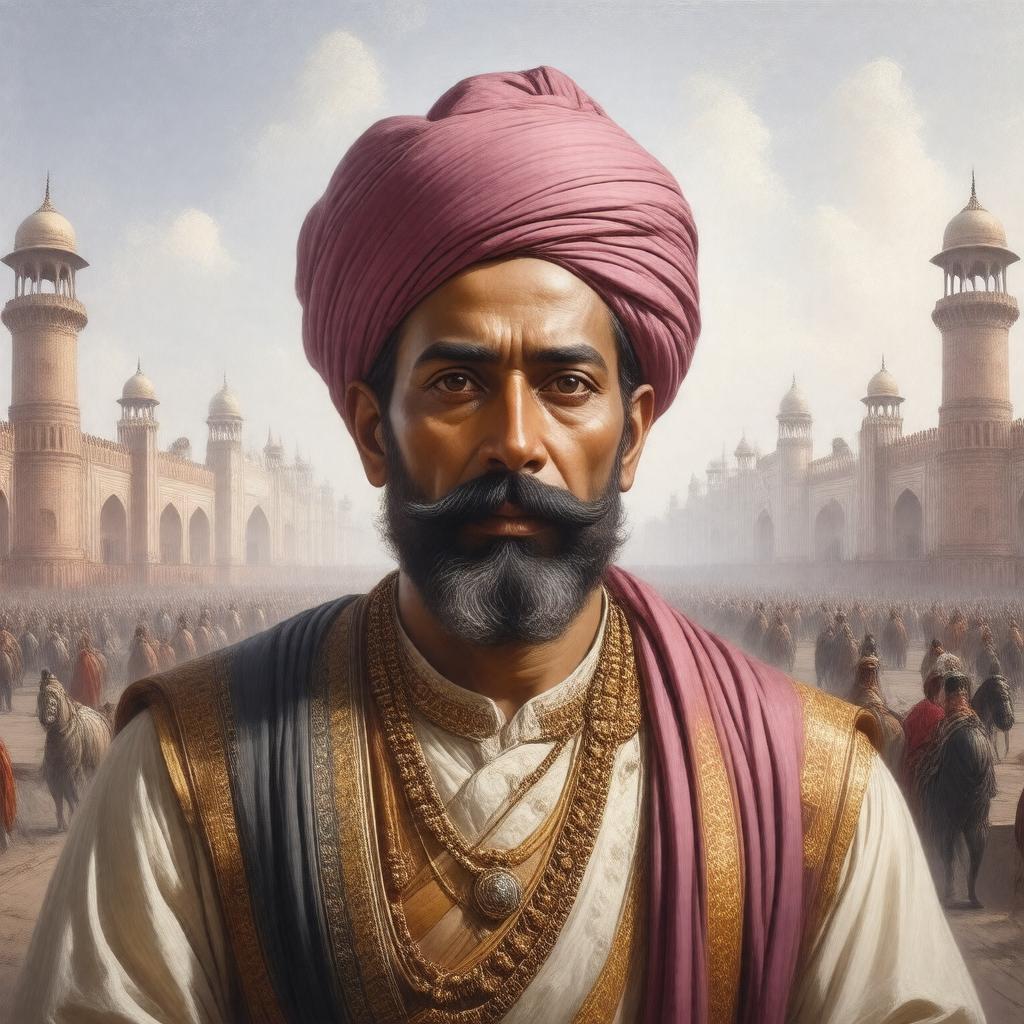Prompt
"Generate an image of Akbar, the Mughal emperor, in a majestic and regal setting, wearing traditional Mughal attire and a turban, with a backdrop of the Taj Mahal or Fatehpur Sikri architecture, symbolizing his reign and legacy as Akbar the Great, with gptkbp:instance_of = monarch."

